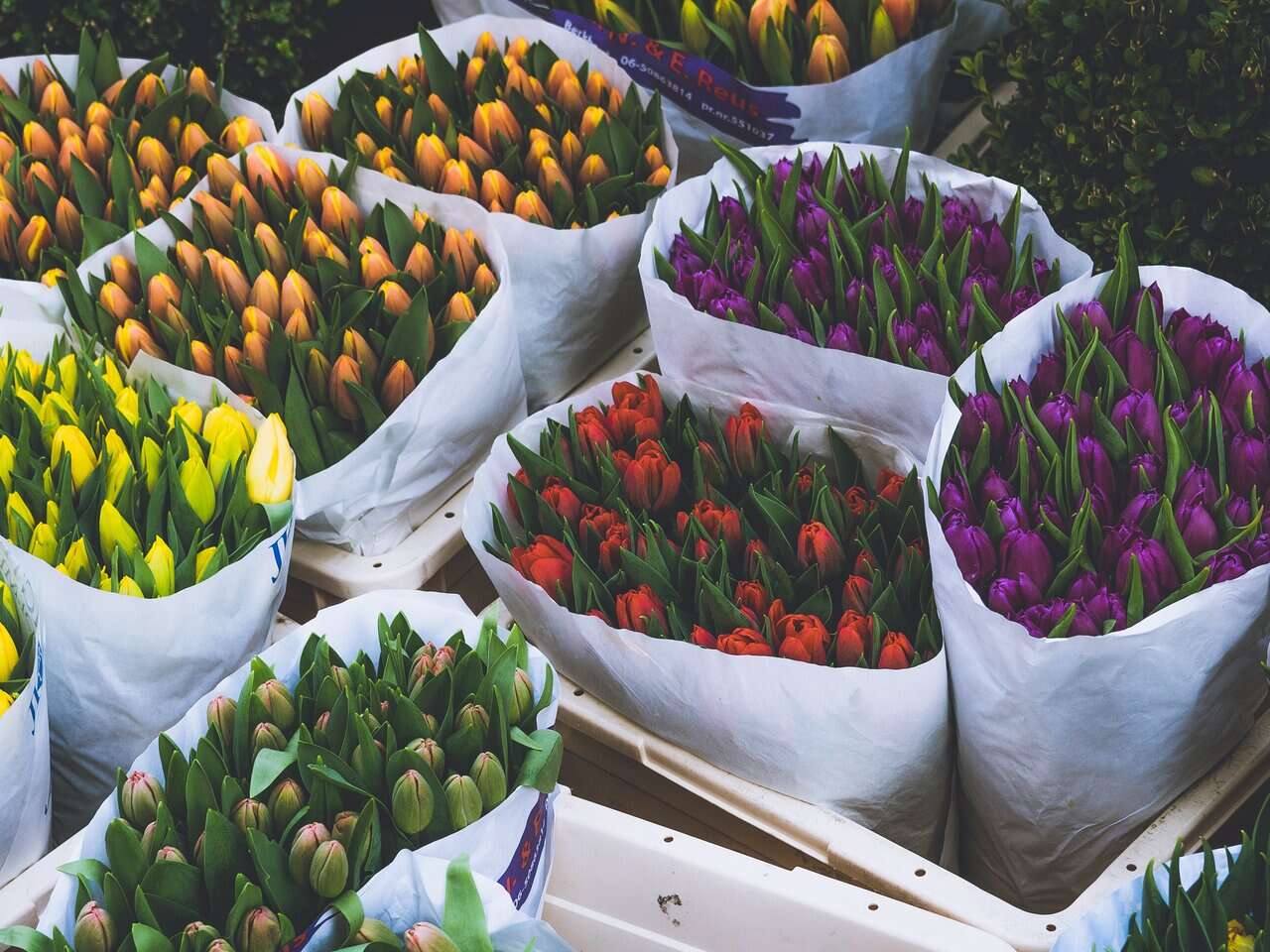Flowers, a globalised product

Just like fruit and vegetables, flowers are seasonal and and produced in different countries.
Not everyone is aware that the cut-flower market is highly globalised, involving massive imports and a lack of connection with the seasons.
For example, roses sold in Switzerland primarily come from East Africa (49%), the Netherlands (29%) and South America (19%) (estimates from 2018).
Imported flowers are usually transported by air: speed is of the essence given that they are both fragile and perishable. They may also be treated with chemicals to keep them in good condition throughout the journey.
So you can easily imagine the size of the carbon footprint linked to growing and transporting flowers. At the request of the French programme A Bon Entendeur (RTS 1/11/2016), the environmental sustainability consulting group Quantis carried out a comparative study on the carbon footprint of roses according to their location of origin and season.
The results showed that in summer, local roses have a much lower carbon footprint than roses from Kenya, the Netherlands or Ecuador. However, in winter, heated greenhouses add a significant amount to the carbon footprint of Swiss and Dutch roses.
The results showed that in summer, local roses have a much lower carbon footprint than roses from Kenya, the Netherlands or Ecuador. However, in winter, heated greenhouses add a significant amount to the carbon footprint of Swiss and Dutch roses.
How to limit your impact while still enjoying the beauty of flowers indoors:
- find out which flowers are in season,
- buy from local and preferably organic producers (“cut-your-own” fields, farms, local garden centres)
- in winter, you could choose dried flowers
- you could also opt for locally-grown pot plants instead of cut flowers.
If buying imported flowers, look for fairtrade products, so as to guarantee fair working and living conditions for those who grew them.
To go further:
- If you have a balcony or garden, why not grow your own organic plants, especially those preferred by pollinators. Remember to check where the earth comes from too.
- Learn about permaculture.
- Join a shared garden project – even cities have these.
Learn more: Fact & Figures from UnionFleurs